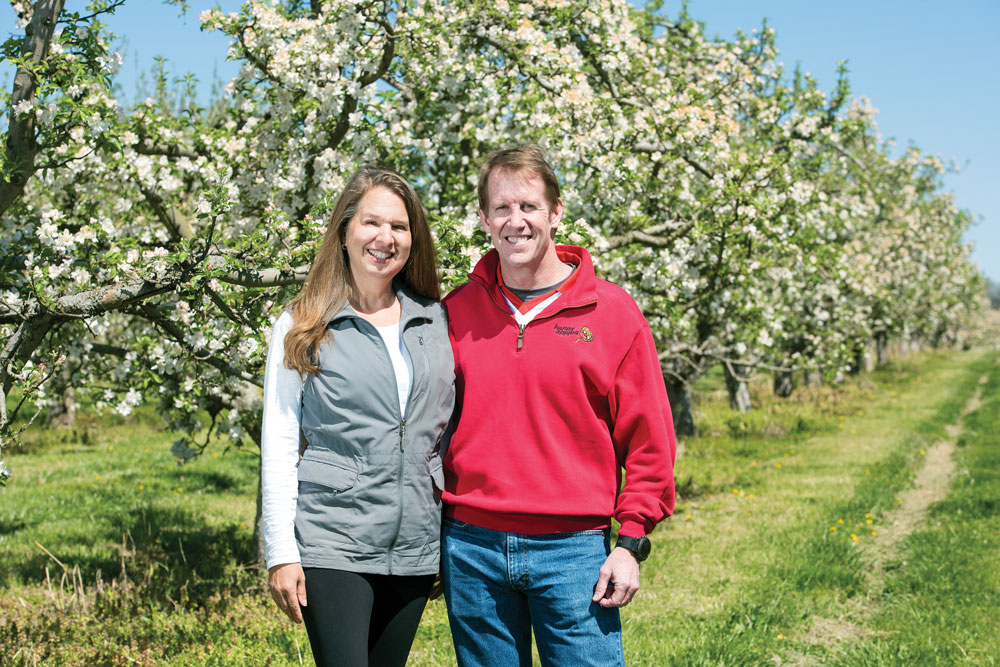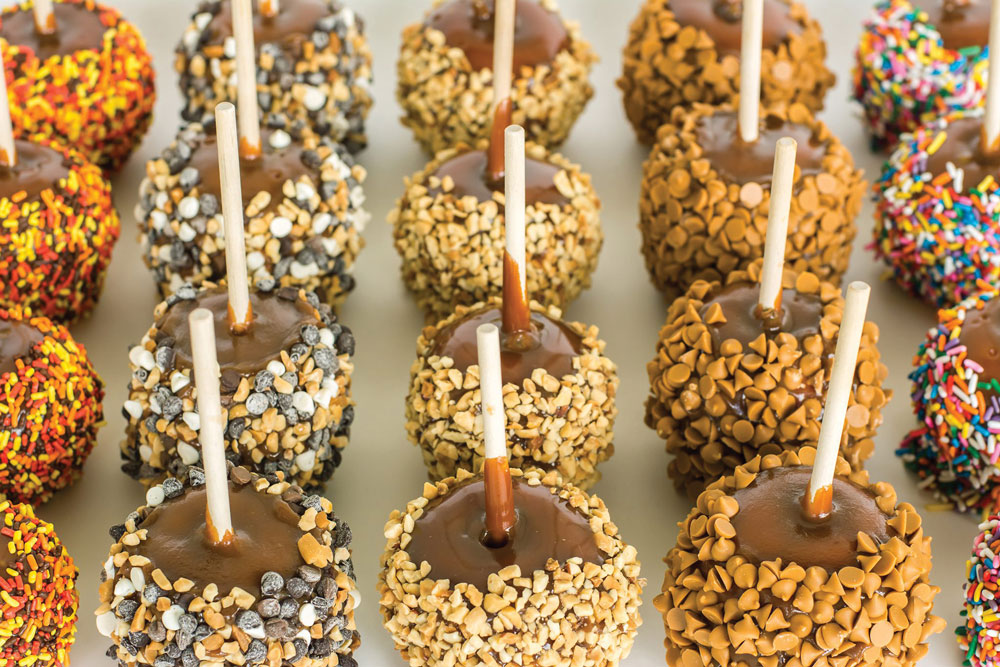
Apple Ambitions
June 22, 2020
Written By Jason Jenkins
A ‘happy accident’ 50 years ago launched a legacy
Few foods are as synonymous with a season as the lauded caramel apple. For a handful of weeks each autumn, this timeless treat — with its classic combination of tart apple, sweet caramel and salty chopped peanuts — adorns countless grocery shelves across the country.
For the past half-century, one Washington, Mo., family has supplied this seasonal staple with year-round passion. Today, Ed and Joette Reidy oversee operations at Happy Apples, which produces millions of caramel apples each year at factories in Missouri and California.
The family’s foray into confection-covered fruit literally began as an accident. Joette’s parents, Steve and Doris Lochirco, owned and operated a produce company that delivered to grocers in and around Franklin County, Mo. One fall, a customer requested caramel apples.
“At first, my parents told him ‘no,’ that they only dealt in fresh produce,” Joette says. “But the grocer kept asking, and eventually my parents said okay. The grocer ordered two cases. What happened next was our happy accident.”
While the original order form read “2” cases, the carbon copy below wasn’t as clear. When the shipment arrived, “2” cases had become “20.”
Saddled with a perishable inventory, the Lochircos hatched a plan. Steve headed to Washington High School and set up in the parking lot, peddling caramel apples to passersby as they arrived for a Friday night football game. He sold out soon afterward.
“People asked him to come back the next Friday, and then the next Friday. Before long, he was getting more orders than the caramel apple supplier could provide,” Joette says. “So, my parents bought their first caramel apple machine and started making their own. That’s how Happy Apples began in 1970.”

While caramel apples may only be on grocers’ shelves in the fall, producing them is a year-round proposition. The company maintains roughly 170 acres of orchards in Missouri, primarily growing Jonathan apples.
“About 70 percent of our crop is Jonathans,” Ed says. “It’s a tangy, tart apple that grows well in Missouri and pairs well with the sweet caramel.”
In the winter while trees are dormant, they are pruned. Trees begin to bloom in early April, and by August, the first apples are ready for harvest. But not all apples are destined to be enrobed in the ooey, gooey sweet stuff.
“For caramel apples, you want an apple that’s 2.25 to 2.5 inches in diameter,” Ed explains. “Everything else will get bagged up to be sold as fresh apples or used for apple cider.”
To meet demand, Happy Apples purchases fruit from other orchards in Missouri, Illinois and Michigan. The company’s West Coast operation uses Granny Smith apples grown in California and Washington.
When apple harvest hits its stride, caramel apple production ramps up. The Missouri factory can produce roughly 350 per minute, while the California facility cranks out 190 per minute.
“We have capacity to produce 20 million caramel apples annually,” Ed adds.
In addition to the traditional Happy Apple, the company offers an assortment of apples covered in everything from candy sprinkles and chocolate chips to a new flavor combo launching this year in partnership with the makers of Tajín, a popular chili-lime seasoning.
“We’re excited about this collaboration,” Ed says. “We’re mixing Tajín with our peanuts and roasting them together. It brings a new dimension of flavor. We think it will be a hit.”
For caramel apple cravings that can’t wait until fall, Happy Apples does offer products through its website, including an Apple of the Month club where new, off-the-wall ideas get tested.
“We once did an Elvis Happy Apple, which was peanut butter and banana, to celebrate Presley’s birthday,” Joette says. “It’s a way to do a little research while keeping our fans engaged until they can find us on grocery store shelves again.”
To learn more about Happy Apples, call 800-527-7532 or visit www.happyapples.com.

